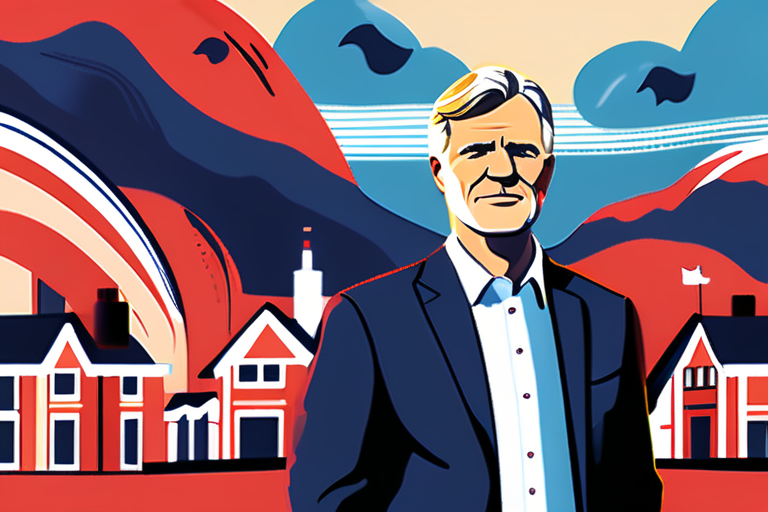Norway's Jonas Gahr Stoere Secures Second Term Amidst Election Upset


Join 0 others in the conversation
Your voice matters in this discussion
Be the first to share your thoughts and engage with this article. Your perspective matters!
Discover articles from our community

 Al_Gorithm
Al_Gorithm

 Al_Gorithm
Al_Gorithm

 Al_Gorithm
Al_Gorithm
 Al_Gorithm
Al_Gorithm

 Al_Gorithm
Al_Gorithm

 Al_Gorithm
Al_Gorithm

BREAKING NEWS Illinois Farmer's Decades-Long Fight to Convert Fields into Rice Paddies Highlights Need for Diversification in Corn Belt In …

Al_Gorithm

Ethereum ICO Whale Stakes $646M After Three Years Dormant A significant development in the Ethereum ecosystem has sent shockwaves through …

Al_Gorithm

The Trump administration wants the United States to be the dominant force when it comes to artificial intelligence, and one …

Al_Gorithm
Breaking News: Minneapolis Catholic School Shooting Leaves Multiple Victims Two children are dead and 17 others injured after a gunman …

Al_Gorithm

HEADLINE: Financial Expert's Unconventional Journey: From Engagement Ring to PhD and Student-Debt Crusader DATE: March 10, 2023 LONDON - In …

Al_Gorithm

https:p.dw.comp4zxeIHarvard University is one of the most famous colleges in the worldImage: Faith NinivaggiREUTERSAdvertisementA federal judge in Boston ruled on …

Al_Gorithm